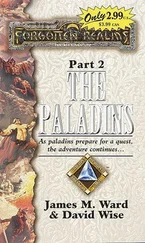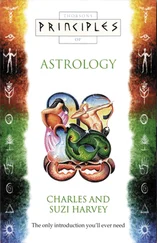Joseph Harvey Ward - The Hand of Providence
Здесь есть возможность читать онлайн «Joseph Harvey Ward - The Hand of Providence» — ознакомительный отрывок электронной книги совершенно бесплатно, а после прочтения отрывка купить полную версию. В некоторых случаях можно слушать аудио, скачать через торрент в формате fb2 и присутствует краткое содержание. Жанр: foreign_prose, foreign_religion, Философия, foreign_psychology, foreign_antique, на английском языке. Описание произведения, (предисловие) а так же отзывы посетителей доступны на портале библиотеки ЛибКат.
- Название:The Hand of Providence
- Автор:
- Жанр:
- Год:неизвестен
- ISBN:нет данных
- Рейтинг книги:3 / 5. Голосов: 1
-
Избранное:Добавить в избранное
- Отзывы:
-
Ваша оценка:
- 60
- 1
- 2
- 3
- 4
- 5
The Hand of Providence: краткое содержание, описание и аннотация
Предлагаем к чтению аннотацию, описание, краткое содержание или предисловие (зависит от того, что написал сам автор книги «The Hand of Providence»). Если вы не нашли необходимую информацию о книге — напишите в комментариях, мы постараемся отыскать её.
The Hand of Providence — читать онлайн ознакомительный отрывок
Ниже представлен текст книги, разбитый по страницам. Система сохранения места последней прочитанной страницы, позволяет с удобством читать онлайн бесплатно книгу «The Hand of Providence», без необходимости каждый раз заново искать на чём Вы остановились. Поставьте закладку, и сможете в любой момент перейти на страницу, на которой закончили чтение.
Интервал:
Закладка:
Rome, from before the commencement of the Christian era, had been the political and military capital of the world. From her gates issued forth those imperial armies that conquered nations and crushed the liberties of mankind. Her rule was not one of reason but one of force. From the age of Augustus Caesar her power had been waning, and when the Emperor Constantine removed the capital to Constantinople, Rome became a city of secondary importance. Though her political prestige was gone she became the seat of a religious empire which had and still has a mighty influence in the nations of the earth. The wrongs which she inflicted on others have recoiled with terrible retribution on herself. Her ruins are silent and majestic witnesses of the providence of God.
To the reign of Constantine the Great, must be referred the commencement of those dark and dismal times which oppressed Europe for a thousand years.
Constantine, while dwelling at Rome, had murdered his son Crispus, his nephew Licinius, and had suffocated, in a steam bath, his wife, Fausta, to whom he had been married twenty years, and who was the mother of three of his sons.
The public abhorrence of his crimes could no longer be concealed. Constantine therefore determined to change his residence and build another metropolis, which he named in honor of himself. He also found it politic to favor the paganized and wrangling Christian sects, that by their aid he might be able to triumph over the powerful coalition that had been formed against him. The reign of Constantine is therefore the true close of the Roman empire: the beginning of the Greek. The transition from the one to the other is emphatically and abruptly marked, by a new metropolis and a new national religion.
Constantinople, at present the capital of the Turkish empire, stands, like Rome, on seven hills, and on a tongue of land projecting into the Bosphorus, which here forms an inlet or small bay known as the Golden Horn.
The Bosphorus, as most of our readers are aware, is the name given to the strait through which flow the waters of the Black sea into the sea of Marmora, and which divides Europe from Asia.
Constantinople is admirably situated for commerce. This is one reason why Russia has so long looked upon it with a covetous eye. In fact, the reason why the bay, on the shores of which the city is built, has been called the "Golden Horn," or horn of abundance, is because into it was brought the wealth of three continents and the products of every clime.
That which is commonly called Constantinople, in reality consists of three great cities, divided by arms of the sea, yet so near to each other that the edifices of either of the cities may be seen distinctly from the other two.
The view here given represents Constantinople looking from the north. In the background is seen the city of Scutari, on the Asiatic side of the Bosphorus. The hills in the distance are those of Asia Minor. On the right is shown the city of Stamboul, which stands on the site of the ancient Byzantium, and the foreground represents the modern city of Galata, where the greater part of the foreign population resides, and where the exchange, custom-house, and most of the churches, convents and hospitals are situated.
As here depicted the current of the Bosphorus flows from left to right and disappears in the distance.
The history of this city is very remarkable, and runs far back into the mist of antiquity. Long before the Christian era it was a place of considerable trade and political importance. Here the barbarians from the coast of the Black sea came to barter their furs for the products of more favored regions. Near this point Alexander the Great crossed the Bosphorus on his great campaign of eastern conquest. In the second century before Christ, the Romans having subdued the neighboring countries, built a fort on the site of the ancient city and named it Byzantium.
The Roman emperor, Constantine the Great, enlarged and beautified the city and made it the capital of the Roman empire, and in honor of himself changed the name to Constantinople. After his death the Roman empire was divided, and Constantinople continued to be the capital of the eastern division.
For more than one thousand years it was the residence of the Caesars and the commercial metropolis of the world.
Owing to the religious rivalry of Rome it was taken and partly burned, by the Crusaders, in A. D. 1205. But the most memorable siege it has ever endured was in A. D. 1453, when it fell into the hands of the Ottoman Turks. By a strange coincidence a Constantine gave his name to the city, and a Constantine reigned at its fall.
It was on the morning of April 6th, A. D. 1453. that Mahomet II., gave the signal for the attack, and the Turkish cannon (then a new invention) thundered against the walls of the city. For fifty days the siege was carried on with little success. At last, food was getting scarce, and the pangs of hunger were sorely felt by the Christians within the city. But hope revived as away on the sea of Marmora, they spied five great ships well laden with supplies and with the Christian flag unfurled. Onward the vessels flew before the breeze, but what a sight met them as they neared the port! Three hundred Turkish ships were drawn up in a line across the straits, each filled with troops and eager for the fight. But there were brave hearts in those five gallant Christian ships, full willing to meet the outnumbering enemy. Gaily they careened before the swelling breeze, and steering straight for the Turkish line bore down upon the foe. Suddenly from the Christian ranks there burst a joyous shout, as the Turkish ships first wavered and then fled. In vain the fierce sultan, Mahomet II., mad with rage, called upon his captains to make good the fight. But the rent was made, and amid a hundred thousand Christian cheers the succoring ships sailed in victoriously to the Golden Horn, and many a mother's heart was glad as she closely clasped her half-famished child.
A strong chain had meanwhile been placed across the harbor, to prevent the entrance of the Turkish fleet. But Mahomet was determined not to be baffled. In the silence of the night he caused eighty boats to be dragged ten miles across the neck of land that divides the sea of Marmora from the tip of the Golden Horn. Rafts were then made, on which cannon were floated to bombard the city from the harbor.
By the 29th of May all was ready for the final battle. The great Byzantine empire, once foremost in the powers of the world, had shrunk into the narrow limits of a few square miles.
The sun had set, and night fell upon the contending hosts. Christian warriors, as they lay under the starry canopy of heaven, cast off the sterner half of man, and let their softer natures free: and loving thoughts of sisters, mothers, wives went winding through the air, to meet in last embrace.
And now the solemn calm before the storm drew near, and all was hushed and still. Constantine did not sleep. He knew that his hour was at hand. With a few chosen knights, he retired to the great church of St. Sophia, and there uncovered stood before the cross. To-morrow the great Byzantine empire would pass away with him! His tears fell thickly at the thought; and he prayed that he might die as became a Christian knight. Then for the last time he partook of the sacrament, and, turning to those around, he said, "I pray forgiveness if I have injured any one in thought, or word, or deed."
He stepped to the portal of the church, where stood his impatient steed, placed his helmet on his noble head, and mounting into the saddle, the humble penitent rode off as warrior Christian king, to battle and to die. He was afterwards found among a heap of the slain.
The banner of the crescent waved over the waters of the Bosphorus, and what was then the richest capital and finest country in Europe. Four hundred and thirty years have rolled by since then. It is still in their possession.
Читать дальшеИнтервал:
Закладка:
Похожие книги на «The Hand of Providence»
Представляем Вашему вниманию похожие книги на «The Hand of Providence» списком для выбора. Мы отобрали схожую по названию и смыслу литературу в надежде предоставить читателям больше вариантов отыскать новые, интересные, ещё непрочитанные произведения.
Обсуждение, отзывы о книге «The Hand of Providence» и просто собственные мнения читателей. Оставьте ваши комментарии, напишите, что Вы думаете о произведении, его смысле или главных героях. Укажите что конкретно понравилось, а что нет, и почему Вы так считаете.












